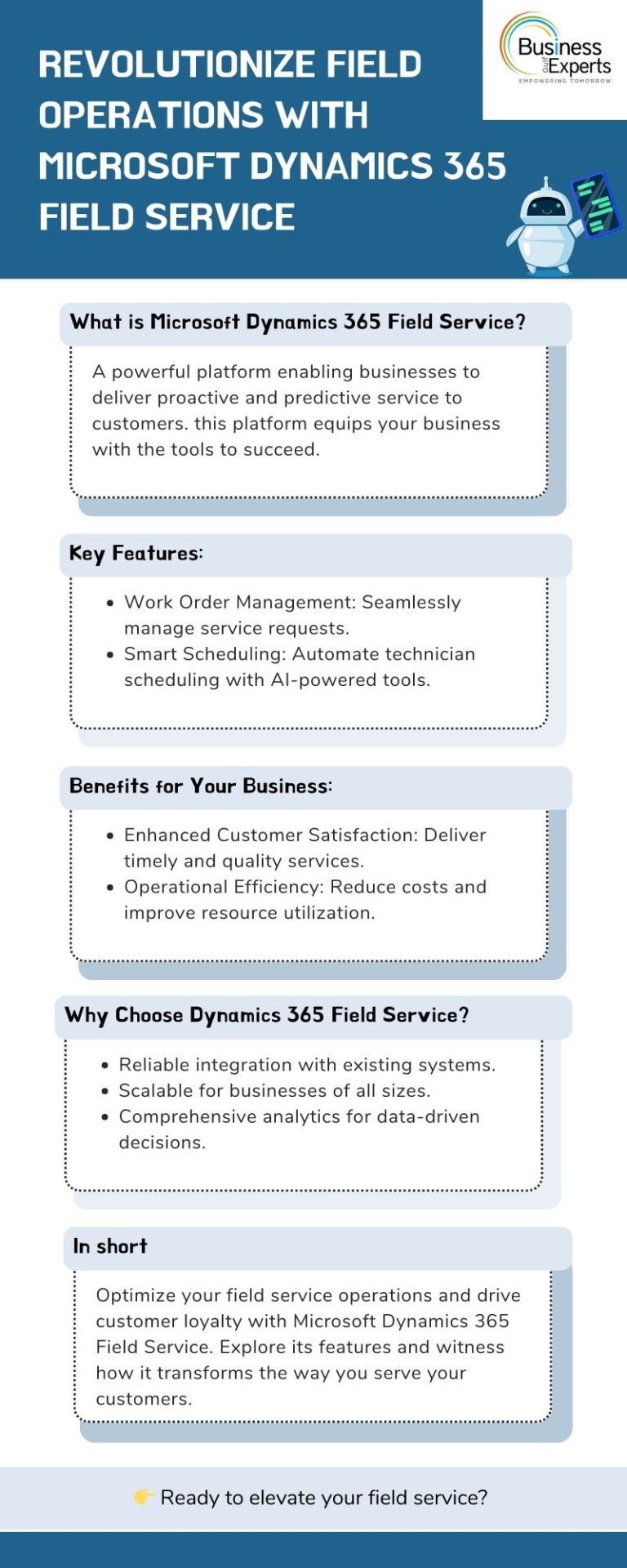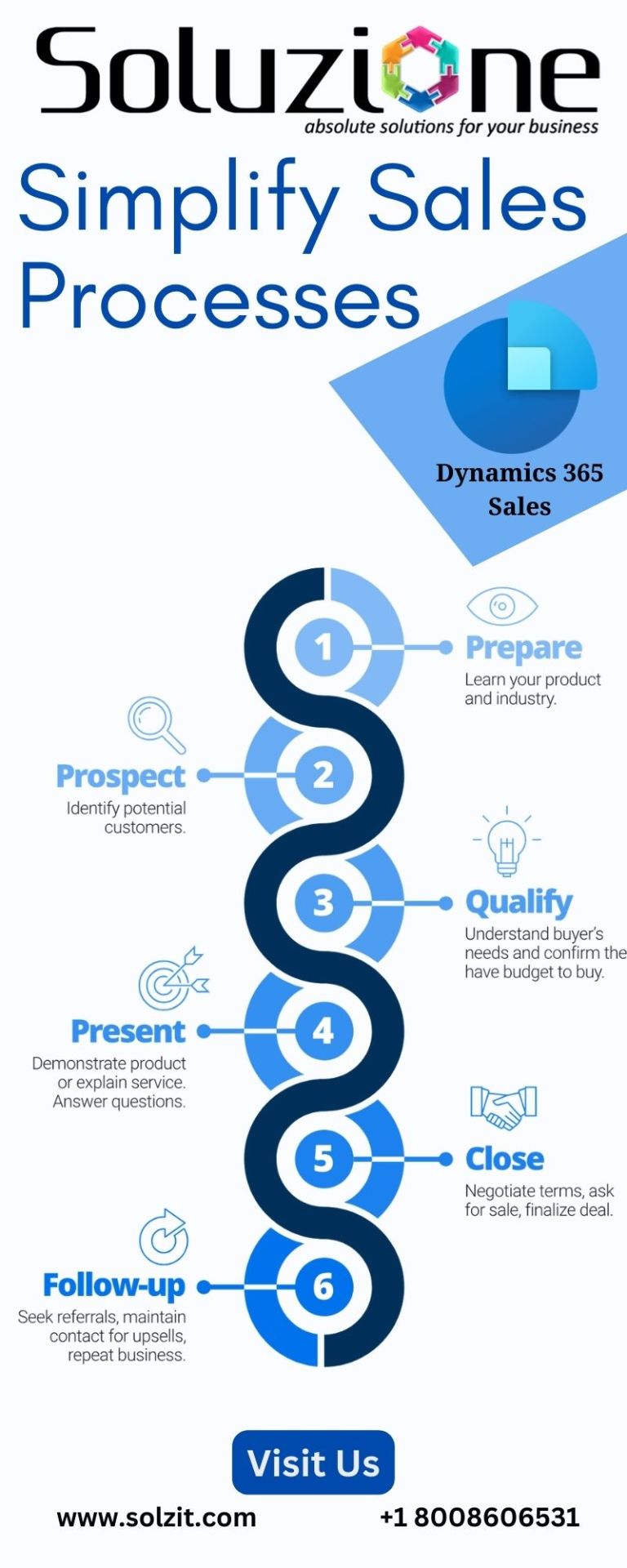#Microsoft Dynamic 365 Field Services
Explore tagged Tumblr posts
Text

Transform Field Operations with Microsoft Dynamics 365 Field Service
Streamline your field service operations with Microsoft Dynamics 365 Field Service. Optimize scheduling, empower technicians, and deliver proactive maintenance for improved customer satisfaction and operational efficiency.
1 note
·
View note
Text
The Power Platform is a suite of tools developed by Microsoft to empower organisations to analyse data, build solutions, automate processes, and create virtual agents.
#Power Platform#Power Platform Solutions#Microsoft Power Platform Solutions#field service management software#dynamics 365 field service#First in Field Service Management
0 notes
Text
Field service challenges-An alternative is Dynamics 365 for Field Service.
Since every business vertical has different issues, there is no benefit to using a solution that works for everyone. We take a more tactical and strategic approach to problems in field service. Let's first examine the challenges encountered by the Dynamics 365 Field Service UAE sector before revealing the workaround that your entire organization can implement.

For the money they spend, customers expect high-quality service. However, adherence is crucial to providing excellent customer service by guaranteeing seamless transitions. You can monitor your technicians' whereabouts, performance, and adherence to assigned tasks and hours in real-time with Dynamics 365 Finance and Operations Dubai.
This issue can be resolved by technicians coordinating with the back office through a service desk with Microsoft Dynamics Partners in UAE. You can easily track hours, view the whereabouts of your technician, schedule and dispatch jobs, and monitor incoming customer requests. With the app on their phones, updated by your field administration managers, your field administration employees can access all necessary data while on the road.
Maximizing the resources at hand is essential to delivering top-notch customer service. Field service employees frequently visit dangerous places, such as the top of radio towers; in these cases, the central back office unit must maintain continuous communication with its personnel. Using Microsoft Dynamics 365 For Field Service, you can check the most recent and current locations of employees.
The field service field is extensively connected with the Microsoft CRM system. Customers are notified regarding their service requests. Dashboards and reporting modules are used to measure overall performance, assisting decision-makers in keeping an eye on trends and performance without adding more work hours to their already hectic schedule.
Delivering exceptional customer service requires more than just advanced tools; it demands the effective use of resources and seamless coordination between field staff and the back office. Microsoft Dynamics 365 For Customer Service offers a comprehensive solution that empowers your organization to achieve this. Field employees can access vital information on the go, ensuring they are well-prepared for any challenges they might face.
Finally, let me say this. Field service is a difficult task to accomplish. In the field service market, the proper system with the correct capabilities can have a significant impact. Furthermore, Microsoft Dynamics 365 has shown to be a reliable option for field service businesses out of all the apps available on the market.
#Dynamics 365 Field Service UAE#Microsoft Dynamics 365 For Field Service#Microsoft Dynamics 365 For Customer Service#Microsoft Dynamics 365 For Financials#Microsoft Dynamics 365 Partners In UAE
0 notes
Text
Build stronger customer engagement with Dynamics 365 CRM
CRM Strategies To Enhance Customer Loyalty And Drive Sales
A robust CRM system can be a game-changer in a market where customer relationships are paramount. Focus Dynamics integrates Dynamics 365 CRM solutions to provide your customers with a seamless, personalised experience. Our CRM strategies are designed to improve customer engagement, streamline sales processes, and boost customer satisfaction.
With our CRM solutions, you can anticipate customer needs, personalise communications, and build lasting relationships that translate into business success.
#dynamics 365 supply chain#business central#dynamics 365 business central#dynamics business central#microsoft dynamics business central#dynamics 365 sales#dynamics 365 field service#dynamics 365 consultancy#dynamics 365 consultant#dynamics 365 consultants#dynamics 365 crm#dynamics implementation#dynamics crm#Microsoft dynamics 365 crm#crm#crm software
0 notes
Text
1 note
·
View note
Text
6 Things You Need to Look for in a Microsoft Dynamics 365 Consultant
Microsoft Dynamics proves to be the best available ERP and CRM solution in the market with proven results in enhancing business processes.

Maximizing your investment: factors to consider when selecting a Microsoft Dynamics 365 consultant Dynamics 365 has had a telling impact among small and medium enterprises. Microsoft Dynamics proves to be the best available ERP and CRM solution in the market with proven results in enhancing business processes with its wide range of feature-rich solutions. Dynamics is an easy to use application that can be implemented and utilized by organizations with their available in-house resources.
However, when it comes to leveraging the maximum benefits of Dynamics’ functionalities, customizing the features to suit your unique processes, integrating the system with other applications, and having a Dynamics partner on board makes a world of difference. Now, the next question is, “How do I choose my Dynamics Consultant?” That is exactly what we are going to discuss today. For your benefit, we have curated a list of things you should look for in a Dynamics Consultant. This checklist will help you evaluate and identify the best partner to work with you to achieve quick success.

Here are the 6 key things you need to look for in a Dynamics 365 Consultant
Product knowledge: Your Microsoft Dynamics Consultant should know Microsoft Dynamics products. They should be familiar and updated with all the existing and the new products available to help find the best-suited product for your business.
Industry experience: In addition to being familiar with all Microsoft Dynamics products, your Dynamics Consultant should be able to understand and appreciate your business. Every industry and organization is different. Therefore, your Microsoft Dynamics Consultant should have the related industry experience to understand your business thoroughly and provide you the best solution.
Skilled staff and team: For a smooth implementation, you need skilled and experienced staff members. When choosing your Dynamics Consultant, make sure to note if they have a passionate team of qualified staff members who can handle the entire implementation seamlessly.
Change management: Change management is one of the most important factors you need to consider in a Microsoft Dynamics Consultant. The Microsoft Dynamics Consultant does not only need to be familiar with products and relevant experiences, but they should also be able to direct the change management for your organization.
Leverage full potential of technological investment: Choosing a new solution or product for your business is a huge step and a big investment. When investing in Dynamics solutions, you need a Dynamics Consultant who will ensure you are embracing the full potential of your investment.
Support your business objectives: Every business has short-term and long-term objectives. Investing in a new product should only support these objectives for maintaining your business success. Your Dynamics Consultant should be able to easily integrate into your business to understand your goals and help you reach them.
At DemandDynamics, we provide expert consultation for your Microsoft Dynamics implementation, customization, integration, development, and maintenance support. For more information on how Microsoft Dynamics can benefit you and your business, visit our website or contact our Team. As a Microsoft Gold Partner and Dynamics expert, DemandDynamics will help you make the right choice.
This content is originally published on Preludesys.
#microsoft dynamics 365 gold partner#Dynamics 365 Implementation#microsoft dynamics integration#dynamics 365 crm implementation#dynamics 365 sales implementation#dynamics 365 Marketing implementation#dynamics 365 Customer Service implementation#dynamics 365 Field Service implementation#dynamics 365 project operations implementation#dynamics 365 consulting services
0 notes
Text
How Can Microsoft Dynamics CRM Boost Sales Productivity?
Microsoft Dynamics CRM can significantly enhance sales productivity through its streamlined processes and robust features:
Lead Management: Efficiently capture, track, and prioritize leads.
Sales Automation: Automate repetitive tasks, such as data entry and follow-ups.
Customer Insights: Gain a 360-degree view of customers for more informed sales strategies.
Reporting and Analytics: Utilize data-driven insights to refine sales tactics.
By leveraging these capabilities, businesses can accelerate their sales cycles, improve customer relationships, and ultimately boost sales productivity.
How does Dynamics 365 Customer Service improve customer interactions?
Dynamics 365 Customer Service is a robust solution designed to elevate customer interactions and enhance overall satisfaction. By harnessing the power of data, automation, and intelligent tools, it empowers businesses to deliver exceptional customer service experiences.
Key Improvements in Customer Interactions:
360-Degree Customer View: Dynamics 365 Customer Service provides a comprehensive view of each customer's history, preferences, and interactions, enabling agents to offer personalized assistance.
Omnichannel Support: It enables seamless communication across various channels, such as email, chat, social media, and phone, ensuring customers can reach out on their preferred platform.
AI-driven Insights: Leveraging artificial intelligence, the solution analyzes customer data to predict needs, recommend solutions, and automate routine tasks, improving response times.
Case Management: Agents can efficiently track and manage customer inquiries, issues, and requests, ensuring they are addressed promptly and effectively.
Self-Service Options: Dynamics 365 Customer Service offers self-service portals and knowledge bases, empowering customers to find answers to common questions independently.
Workflow Automation: Businesses can automate repetitive tasks, such as routing inquiries to the right agents or triggering follow-up actions, streamlining processes.
Performance Analytics: Real-time analytics and reporting tools provide insights into service operations, enabling continuous improvement and data-driven decision-making.
Dynamics 365 Customer Service revolutionizes customer interactions by fostering personalization, efficiency, and agility in responding to customer needs, ultimately building stronger customer relationships.
How does Dynamics 365 Field Service optimize field operations?
Microsoft Dynamics 365 Field Service is a powerful solution that streamlines and enhances field operations for businesses across various industries. By combining advanced technologies and intelligent tools, it ensures efficient, responsive, and customer-centric service delivery.
Key Optimization Aspects:
Resource Scheduling: Dynamics 365 Field Service uses AI-driven scheduling algorithms to assign the right technician with the right skills to each job, optimizing resource allocation.
Real-time Communication: It facilitates seamless communication between field technicians and back-office teams, ensuring quick updates and issue resolution.
Inventory Management: The solution helps manage and track inventory levels in real time, preventing stockouts and reducing excess inventory costs.
Predictive Maintenance: Leveraging IoT data and predictive analytics, it enables proactive equipment maintenance, reducing downtime and costly emergency repairs.
Mobile Accessibility: Field technicians can access all necessary information, work orders, and customer details on their mobile devices, improving on-the-go decision-making.
Customer Engagement: It enhances customer interactions by providing technicians with a 360-degree view of customer history and preferences, allowing for personalized service.
Analytics and Insights: Through data-driven dashboards and reports, businesses can gain valuable insights into field operations, enabling continuous improvement.
Dynamics 365 Field Service optimizes field operations by fostering efficiency, cost-effectiveness, and customer satisfaction, making it a vital tool for modern service-oriented businesses.
#microsoft dynamics crm#dynamics crm#dynamics 365 field service#microsoft dynamics 365 customer service
0 notes
Text

Soluzione is Microsoft Gold Partner and excels in CRM Software for all kinds of businesses and helps to enhance their efficiency in tracking sales funnel, leads and opportunities more effectively and improve sales performance by implementing Dynamics 365 for Sales solutions.
#Microsoft Dynamics 365#MS Dynamics 365#Dynamics 365 CRM#Dynamics 365 Developer#Microsoft Dynamics CRM#Dynamics 365 Marketing#Dynamics 365 Sales#Dynamics 365 Field Service#Dynamics 365 Project Operations#Dynamics 365 for Customer Service
0 notes
Text
Facilitate higher workplace productivity by using MS Teams document management systems
Many factors affect workforce productivity. One of these is the ability to find the right documents, resources, and files at the right moment. This affects enterprise productivity, the pace of work, and employee productivity. It also allows employees to concentrate on more valuable activities like innovation, strategy, training, and skill enhancement. Research shows that employees are spending more time searching for critical documents in cluttered online document management systems than they are focusing on providing workplace value.
#enterprise productivity#modern workplace solutions#Microsoft Teams consulting#business productivity#digital transformation solutions#comprehensive business management#ppm partners#business management solution#dynamics 365 field service#business applications#business productivity solutions
0 notes
Link
Microsoft Dynamics 365 for Field Service is the next generation of cloud-based enterprise-ready intelligent business applications for field service management to help the user to streamline the field service process and deliver an exceptional onsite experience.
Microsoft Dynamics 365 Field Service Module looks after the schedules of the technicians, the tickets raised by the clients for services required, schedule boards, and overall resource management.
0 notes
Text

Microsoft Power Business Intelligence (Power BI) offers user-friendly dashboards, real-time insights, seamless data integration, advanced analytics, and cost-effective solutions, empowering businesses to make data-driven decisions efficiently and effectively.
#microsoft dynamics 365 marketing#microsoft partners in uae#microsoft dynamics 365 field service#microsoft dynamics 365 services
0 notes
Text
field service management software
field service management software - Deliver a seamless, end-to-end service experience with Dynamics 365 for Field Service. Built-in intelligence helps you resolve service issues before they occur, reduce operational costs, and deliver positive onsite experiences.Automate and improve scheduling to dispatch the right technician and get the most value out of your resources.Empower technicians with a 360-degree view of your customers and real-time guidance to improve resolution time and earn customer trust.
Read More: https://www.sognos.com.au/field-service
#dynamics 365 field service#field management software#field service management software#field service management#microsoft dynamics 365 field service#best field service management#911 fox#microsoft dynamics 365#the winchesters#mcr
0 notes
Text
The Crucial ERP System Examples: Transforming Business Operations

In today’s fiercely competitive business realm, the quest for operational efficiency and streamlined management is paramount. Enterprise Resource Planning (ERP) systems stand tall as technological marvels, revolutionizing the way businesses operate. These robust software solutions amalgamate various functions within a unified framework, enabling seamless coordination across departments and facilitating data-driven decision-making.
This exploration ventures into the realm of ERP systems, shedding light on a spectrum of exemplary solutions that have reshaped modern business operations. From stalwarts like SAP ERP and Oracle ERP Cloud to innovative players like Microsoft Dynamics 365 and Odoo, each system represents a unique amalgamation of features, functionalities, and industry applications.
This comprehensive journey traverses the functionalities, industry adaptability, and transformative potentials of these ERP systems. Understanding their intricacies is pivotal for businesses seeking to optimize processes, unlock efficiencies, and navigate the complexities of today’s business landscape. Join this insightful exploration to unravel the significance and impact of these ERP system examples in shaping the future of business operations.
ERP System Examples
1. SAP ERP: Revolutionizing Business Management
SAP ERP has solidified its position as a leader by providing an all-encompassing suite covering critical business functions. Beyond its core modules in finance, HR, and supply chain, SAP offers specialized applications for industry-specific needs. For instance, SAP S/4HANA, an intelligent ERP, integrates AI and analytics for real-time insights, empowering businesses to adapt swiftly to market changes.
The scalability of SAP ERP is noteworthy, catering to startups aiming for growth and global corporations managing complex operations. It provides modular solutions, enabling businesses to adopt specific functionalities based on their immediate needs.
2. Oracle ERP Cloud: Innovating Operations in the Cloud
Oracle ERP Cloud’s robust suite extends far beyond traditional ERP capabilities. It embraces emerging technologies like AI, machine learning, and blockchain to drive innovation. Its predictive analytics empower businesses to anticipate market trends, optimize supply chains, and mitigate risks effectively.
The cloud-based structure of Oracle ERP Cloud ensures not just accessibility but also scalability without compromising security. It enables seamless integration with other Oracle Cloud applications, fostering a unified ecosystem for comprehensive business management.
3. Microsoft Dynamics 365: Integrating CRM and ERP Capabilities

Microsoft Dynamics 365 is a fusion of CRM and ERP functionalities, providing a holistic platform for businesses. Unlike its core ERP modules, Dynamics 365 offers advanced tools for customer engagement, field service, and marketing automation. Its flexibility lies in its modularity, allowing businesses to tailor their systems by choosing specific applications that align with their objectives.
Moreover, its integration with Microsoft Office 365 and Power Platform strengthens collaboration and data analysis, facilitating informed decision-making across departments.
4. NetSuite: Empowering Diverse Industries
NetSuite’s cloud-based ERP system addresses the complex needs of various industries. Its suite encompasses solutions for financial management, e-commerce, and inventory control. Beyond the core ERP functionalities, NetSuite offers industry-specific modules, such as SuiteCommerce for retail businesses and SuiteSuccess for services, enhancing its appeal across diverse sectors.
The scalability and adaptability of NetSuite make it a preferred choice for businesses experiencing rapid growth or seeking to expand into new markets.
5. Infor ERP: Tailored Solutions for Specific Sectors
Infor’s industry-specific ERP solutions cater to the nuanced requirements of sectors like healthcare, manufacturing, and distribution. In addition to its standard ERP functionalities, Infor focuses on specialized applications such as Infor CloudSuite Healthcare for healthcare organizations and Infor LN for manufacturing, ensuring tailored solutions for sector-specific challenges.
Infor’s commitment to innovation and addressing sector-specific complexities underscores its relevance in the ERP landscape.
6. Epicor ERP: Amplifying Industry Operations

Epicor ERP excels in catering to industries such as manufacturing, distribution, retail, and services. Its core ERP functionalities are complemented by advanced analytics and business intelligence tools. Epicor’s Smart Inventory Planning and Optimization (IPO) tool, for instance, utilizes AI to enhance inventory management, improving efficiency and reducing costs.
Moreover, its agile architecture enables easy customization and integration with third-party applications, providing businesses with a highly adaptable solution.
7. Odoo: Flexibility and Customization
Odoo’s open-source ERP system offers an extensive suite of applications covering CRM, inventory management, project management, and more. What sets Odoo apart is its modular nature, allowing businesses to select and integrate specific applications as per their requirements. Odoo’s flexibility and affordability are especially beneficial for small to medium-sized enterprises seeking customizable solutions without exorbitant costs.
The Value of ERP Systems in Modern Business
ERP systems serve as catalysts for efficiency, productivity, and growth:
Streamlined Operations: Automating tasks streamlines processes, reducing manual errors and optimizing resource allocation.
Enhanced Data Management: Centralized databases ensure data consistency and accuracy, fostering informed decision-making.
Agile Decision-Making: Real-time data access empowers businesses to make agile decisions, staying ahead in dynamic markets.
Customer-Centric Approach: Integrated CRM functionalities enable businesses to deliver personalized services, boosting customer satisfaction and loyalty.
Making Informed Choices: Selecting the Right ERP System

The process of choosing an ERP system involves careful evaluation and alignment with a business’s unique needs. Understanding the scalability, integration capabilities, and industry-specific functionalities of each system is crucial for successful adoption.
Conclusion: Embracing ERP Systems for Sustainable Growth
The landscape of ERP systems continues to evolve, offering businesses versatile solutions to streamline operations, enhance efficiency, and foster sustainable growth. From SAP’s scalability to Oracle’s cloud-driven innovation and Odoo’s customization prowess, each system exemplifies the diverse capabilities shaping modern business management.
Selecting the right ERP system aligned with specific needs remains pivotal for organizations seeking resilience and competitiveness. As businesses strive for optimization and adaptability, embracing these transformative technologies ensures a strategic advantage in an ever-evolving market. It stands as a pillar of efficiency, empowering businesses to navigate complexities and drive success through informed decisions and streamlined operations.
Also Read: A Deep Dive into Corporate Wellness Programs for a Healthier, Happier Workplace
#ERPRevolution#BusinessTransformation#TechInnovation#DigitalTransformation#EnterpriseSolutions#InnovationInBusiness#TechLeadership
2 notes
·
View notes
Text
https://focusdynamics.com.au/
Strategic Focus, Dynamic Solutions
Your expert partner in Dynamics 365 solutions.
Focus Dynamics Group is an experienced team that specialises in providing advanced Dynamics 365 solutions. We believe in the powerful combination of the right people with the right technology for ultimate customer success.

#dynamics 365#microsoft dynamics 365#dynamics 365 solution#dynamics 365 finance#dynamics 365 business central#dynamics 365 partner#dynamics 365 consultant#dynamics business central#dynamics 365 erp#business central#microsoft dynamics business central#dynamics 365 customer service#dynamics 365 sales#dynamics 365 project operations#dynamics 365 field service#dynamics 365 finance and operations#dynamics 365 crm#dynamics 365 implementation#dynamics 365 marketing#dynamics erp#power automate
0 notes
Text
Top 10 Tools for Digital Transformation Success

Digital transformation specialist relies on various tools to improve efficiency, automate workflows, and enhance customer experiences. Here are the top 10 tools that drive digital transformation success:
1. Cloud Computing Platforms
Tools: AWS, Microsoft Azure, Google Cloud
Enable scalability, security, and remote accessibility.
Power data storage, machine learning, and enterprise applications.
2. Customer Relationship Management (CRM)
Tools: Salesforce, HubSpot, Microsoft Dynamics 365
Centralizes customer data for improved sales, marketing, and support.
Uses AI-driven insights to enhance customer engagement.
3. Enterprise Resource Planning (ERP)
Tools: SAP S/4HANA, Oracle NetSuite, Microsoft Dynamics 365 ERP
Integrates finance, HR, supply chain, and operations into a unified system.
Enhances decision-making with real-time analytics.
4. Robotic Process Automation (RPA)
Tools: UiPath, Automation Anywhere, Blue Prism
Automates repetitive tasks, reducing manual effort and errors.
Improves efficiency in finance, HR, and customer service processes.
5. Business Intelligence & Data Analytics
Tools: Power BI, Tableau, Google Looker
Visualizes business data for actionable insights.
Uses AI-powered analytics for predictive decision-making.
6. Cybersecurity & Compliance
Tools: Palo Alto Networks, Cisco Security, Okta
Protects digital assets from cyber threats and ensures compliance.
Implements multi-factor authentication (MFA) and zero-trust security models.
7. Collaboration & Productivity
Tools: Microsoft 365, Google Workspace, Slack, Zoom
Enhances remote work and real-time collaboration.
Integrates cloud storage, messaging, and video conferencing.
8. Artificial Intelligence & Machine Learning
Tools: IBM Watson, Google Vertex AI, OpenAI API
Automates decision-making, enhances customer service, and drives predictive analytics.
Personalizes customer experiences through AI-driven insights.
9. Low-Code/No-Code Development
Tools: Mendix, OutSystems, Microsoft Power Apps
Enables non-developers to create applications quickly.
Speeds up digital transformation by reducing dependency on IT teams.
10. Internet of Things (IoT) & Edge Computing
Tools: AWS IoT, Google Cloud IoT, PTC ThingWorx
Connects devices and sensors for real-time monitoring.
Optimizes supply chain, manufacturing, and smart infrastructure.
How This Relates to Operations Excellence
Since you are in Operations Excellence Management, tools like RPA, ERP, and Business Intelligence can significantly enhance process efficiency and automation in your field. Implementing these can help you drive cost reduction, productivity gains, and data-driven decision-making in operations.
Would you like recommendations on specific tools that fit your industry or current role?
0 notes
Text
Become a D365 Pro: Essential Skills and Knowledge for Business Success

In today’s fast-paced, data-driven business world, companies need to harness the right tools to optimize their operations, improve customer relationships, and drive business growth. One of the most powerful tools available is Microsoft Dynamics 365 (D365). This comprehensive suite of enterprise resource planning (ERP) and customer relationship management (CRM) applications is designed to help businesses streamline processes, gain valuable insights, and deliver exceptional service and for more click here d365 training.
Becoming a D365 pro is a game-changer for both your career and the success of your organization. Whether you’re a business owner, a manager, or an IT professional, mastering D365 will give you the ability to fully harness its capabilities and unlock its full potential. In this article, we’ll explore the essential skills and knowledge you need to become a D365 pro and achieve business success.
What is Microsoft Dynamics 365?
Before diving into the specifics of what it takes to become a D365 pro, it's important to understand what Microsoft Dynamics 365 is and how it can benefit your business. D365 is a cloud-based suite that combines multiple business applications, including:
Sales and Marketing: D365 helps businesses manage customer relationships, streamline sales processes, and drive targeted marketing campaigns.
Customer Service: Provide exceptional customer service by resolving issues quickly and efficiently while building long-lasting customer relationships.
Finance and Operations: Manage accounting, finance, and operational workflows with real-time insights that help drive better decision-making.
Supply Chain Management: Track inventory, optimize procurement, and improve the overall efficiency of your supply chain.
Human Resources: Manage HR tasks like recruitment, payroll, and employee records, ensuring your workforce is aligned and productive.
D365 offers businesses a flexible and scalable platform that can be customized to meet specific needs. It’s an all-in-one solution that allows businesses to integrate key functions into one unified system.
Essential Skills to Become a D365 Pro
To become proficient in D365 and leverage its full potential, you need to master certain skills that are essential for using the platform effectively. Whether you’re looking to improve your business operations or boost your career in the field of business software, these are the key skills you’ll need to develop:
1. Understanding D365 Modules
Microsoft Dynamics 365 is made up of several modules, each designed to handle a different aspect of business management. To be a D365 pro, it’s crucial to understand the different modules and how they integrate with each other. The core modules include:
Sales and Marketing: Learn how to manage sales leads, opportunities, and campaigns using D365’s sales and marketing tools.
Customer Service: Understand how to use D365 to provide top-tier customer support, manage cases, and track customer satisfaction.
Finance and Operations: Master financial operations, including budgeting, accounting, and financial reporting, to keep your business’s finances running smoothly.
Supply Chain Management: Gain a deep understanding of inventory management, procurement, and logistics to optimize supply chain processes.
Human Resources: Learn how to manage employee records, payroll, benefits, and other HR tasks seamlessly with D365.
Being able to navigate these modules efficiently and understand how they connect to one another is key to mastering D365.
2. Data Analytics and Reporting
D365 offers powerful data analytics and reporting features that help businesses make informed, data-driven decisions. Understanding how to use D365’s analytics tools to track key performance indicators (KPIs), generate custom reports, and analyze data trends is an essential skill for any D365 pro.
Dashboard Creation: Learn how to create personalized dashboards that provide real-time insights into business performance.
Power BI Integration: D365 integrates with Power BI, Microsoft’s business intelligence tool. As a pro, knowing how to use Power BI with D365 will allow you to create advanced analytics and visual reports that can inform strategic decisions.
3. Customization and Configuration
One of the standout features of D365 is its customization options. Every business has unique needs, and D365 allows for tailored configurations to meet those needs. To be a true D365 pro, it’s essential to understand how to customize workflows, forms, and user interfaces to fit your specific requirements.
Workflows: Learn how to automate business processes and build custom workflows that align with your organization’s operations.
Security and User Permissions: Understand how to configure user roles, permissions, and security settings to ensure the right people have the appropriate access to data and functionality.
Being able to configure and customize D365 will allow you to get the most out of the platform while ensuring it fits your business model.
4. Integration with Other Systems
D365 can be integrated with other tools and platforms, such as Office 365, Azure, and third-party applications. Having the knowledge and skills to integrate D365 with other systems will make you a valuable asset to your organization.
API Integrations: Learn how to connect D365 with other business systems using APIs.
Third-Party Application Integration: Many businesses use third-party tools for specialized tasks. Understanding how to integrate these tools with D365 can enhance your organization’s efficiency.
5. User Training and Support
Once you’re proficient in using D365, you’ll need to pass on your knowledge to others within your organization. User training and support is an essential skill that will help ensure your team gets the most out of the platform.
Training Materials: Develop training materials, user guides, and best practices to help employees navigate D365 with ease.
Troubleshooting: As you become more experienced with D365, your troubleshooting skills will help you resolve issues efficiently and minimize downtime.
6. Staying Up to Date with New Features
Microsoft regularly updates D365 with new features and enhancements. To be a true D365 pro, you need to stay on top of these updates and understand how to incorporate them into your workflows.
Release Notes: Stay informed about new features and functionalities by regularly reviewing Microsoft’s release notes.
Continuous Learning: Enroll in training courses and attend webinars to stay up to date on D365 best practices and new capabilities.
How to Gain D365 Knowledge
There are several resources available to help you develop the skills you need to become a D365 pro:
Microsoft Learn: Microsoft’s official learning platform offers free, self-paced courses that cover the fundamentals of D365 and advanced topics.
Certifications: Microsoft offers certifications in various D365 areas, including Sales, Customer Service, and Finance and Operations. Earning a certification validates your expertise and sets you apart in the job market.
Online Courses: Platforms like LinkedIn Learning, Udemy, and Pluralsight offer a wide range of D365 courses for all skill levels.
Community Forums: Engage with other D365 professionals through forums, user groups, and online communities to share knowledge and ask questions.
Conclusion
Becoming a D365 pro is a powerful way to enhance your career and contribute to your organization’s success. By mastering essential skills such as understanding D365 modules, utilizing data analytics, customizing workflows, and integrating with other systems, you’ll position yourself as an expert in this powerful platform.
The good news is that the resources are available to help you achieve this. Whether you’re starting with the basics or looking to enhance your existing knowledge, investing time in learning D365 will pay off in the form of greater productivity, better decision-making, and enhanced career opportunities. Start your journey to becoming a D365 pro today, and unlock the potential for success in your business and career!
0 notes